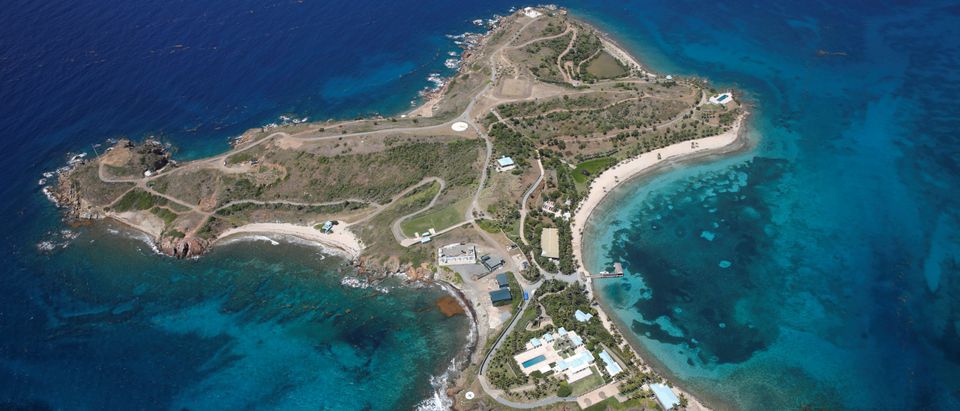The 2024 Republican presidential primary contest so far is not much of a contest at all.
National polls show former president Donald Trump running away with the GOP nomination in a landslide. The early primary states in Iowa, New Hampshire and South Carolina offer tighter races, but Trump still leads his competition by double digits. However, one early contest is still totally up for grabs. With no polling and no clear favorite, the U.S. Virgin Islands offer a huge opportunity for a Republican candidate to knock Trump out of the top spot.
Although not one of the fifty states, the Virgin Islands are one of America’s territories, with a population of around 98,000. Virgin Islanders are U.S. citizens but do not vote in the general elections. They will, however, play a key role in determining who the Republican presidential nominee will be. Virgin Island Republican Party Chairman Gordon Ackley confirmed that caucus voting will occur on Feb. 8 — the party’s third voting contest after Iowa and New Hampshire.
“The Virgin Islands caucus will be a free, fair, and honest election,” Chairman Ackley said in a statement. It will also use ranked-choice voting to determine the GOP primary contest winner. Ranked-choice voting differs from traditional primary voting and state caucuses.
In a ranked-choice voting system, voters rank the candidates in order of preference. If no candidate receives a majority of first-choice votes, the candidate with the fewest votes is eliminated, and their votes go to the voters’ second choice candidates. This process continues until a candidate wins a majority of the vote. Virginia used the RCV system, and Glenn Youngkin emerged as the nominee, eventually pulling off an upset win to become governor.
Trump’s gigantic lead in the primary is primarily due to a plethora of candidates vying for the Republican nomination. As long as Trump stays stagnant, he has an easy path to being re-nominated. Without other candidates consolidating, they will split what remains of the vote and lose by huge margins. Ranked-choice voting can prevent this outcome.
Most voters would prefer to see a candidate other than Trump, so under the RCV system, the voting would continue until a consensus candidate wins. Washington Post opinion writer and political pollster Henry Olsen gives a clear example of how this could play out in the Virgin Islands. “[S]uppose Trump leads the Virgin Islands ballot with 40 percent, with 60 percent backing the rest of the field. If 85 percent of the non-Trump votes prefer someone other than Trump, eventually, they would combine behind one of the alternatives. That would mean a Trump opponent would win with 51 percent to Trump’s 49 percent.”
A poll conducted by WPA Intelligence after the first primary debate backs the claim that Trump-skeptical voters will support an alternative candidate given the opportunity. According to their findings, Trump leads as voters’ first choice with 49 percent with DeSantis in a distant second at 18.5 percent. But with each round of ranked-choice voting, Trump’s lead shrinks, dwindling from over 30 points in the first round to just 12 in the 11th, in which he beats DeSantis 56-44. That would mean that of those who did not initially choose DeSantis or Trump, about 75 percent ranked the Florida governor higher than the former president.
DeSantis pulling off an RCV upset in the Virgin Islands is not a realistic scenario if Trump manages to get more than 40 percent of first-choice votes. Otherwise, DeSantis would have to finish in second place and win over 80 percent of the remaining ballots while competing against seven other rivals on the ballot. It is a difficult task, but certainly not impossible.
The good news for DeSantis is that Trump may have hit his ceiling in the polls, and the more voters pay attention in the coming months, the more they’ll focus on his federal indictments, campaign funds for legal fees and the former president’s unpopularity with independents. If Trump drops below 40 percent, DeSantis or another candidate could take either Iowa or New Hampshire, and then all eyes would be on the Virgin Islands.
The caucus winner would only receive nine delegates, a tiny fraction of the 2,000-plus nationally, but any win against the front-runner and former president would garner media attention and shift the momentum of the race going in South Carolina, Nevada and then Super Tuesday.
DeSantis has already spent a good amount of campaign cash in the Virgin Islands and is the first presidential candidate to visit the territory since George H.W. Bush in 1988. Florida’s demographic trends are similar those of the Virgin Islands, as it is a majority non-white territory with 22 percent of adults having a college degree. DeSantis won those demographics in Florida and should be able to sway many of those voters away from Trump.
The Virgin Islands are usually a footnote in nominating contests, but this year’s caucus could change the trajectory of the Republican Party.
Alex Adkins is a graduate of Benedictine University in political science. He has written for the Washington Examiner, American Thinker, American Spectator, and The Federalist. You can follow him on Twitter @Zylinger.
The views and opinions expressed in this commentary are those of the author and do not reflect the official position of the Daily Caller.


